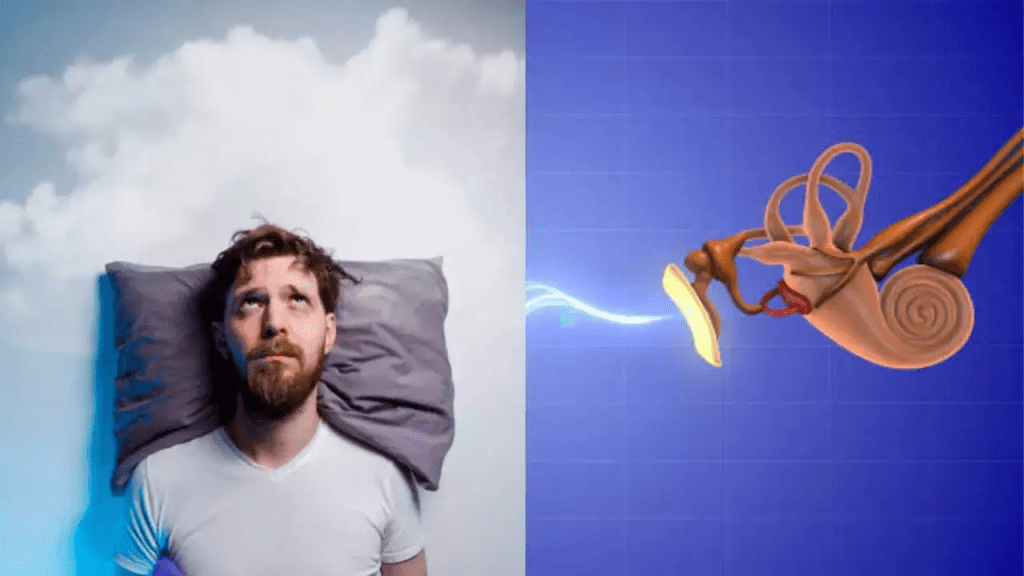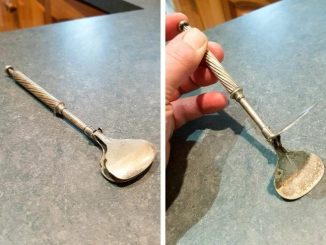Have you ever rolled onto your side at night, trying to relax, only to notice a rhythmic thudding sound in your ears? It’s as if your heartbeat has decided to give you a front-row seat to its nightly performance. If you’ve experienced this, you’re not alone. But why does this happen, and should you be concerned?
Why Can You Hear Your Heartbeat When Lying on Your Side?

First, let’s put your mind at ease. Hearing your heartbeat while lying on your side is typically completely normal. It’s just one of those quirky things your body does when everything is functioning as it should.
US surgeon Dr. Anthony Youn, a popular TikTok educator, explains this phenomenon with a simple analogy. He compares the sensation to “turning the bass up too loud” in your pillow. The sound is usually caused by the position of your carotid artery—a major blood vessel located on either side of your neck.
When you lie on your side, the carotid artery can press against your pillow. This close proximity amplifies the sound of blood pumping through the artery, which is why you hear the rhythmic thudding in your ears. It’s essentially your body doing its job, keeping your brain and other vital organs alive and well. The bottom line? It’s nothing to lose sleep over.
The Role of the Carotid Artery in This Phenomenon
The carotid arteries are two major blood vessels that run along the sides of your neck. Their job? To deliver oxygen-rich blood to your brain, face, and neck. They pass close to your inner ear, which is why lying on your side can make your pulse seem louder.
When the carotid artery presses against a surface—like your pillow—it creates vibrations that travel through your body and amplify in your ear canal. This is why you hear the distinct “thud-thud” rhythm of your heartbeat when lying on your side. In short, your body’s circulatory system is working overtime to keep you healthy, and you’re just catching a glimpse of it in action.
When Hearing Your Heartbeat Becomes Concerning
While hearing your heartbeat every now and then is normal, it’s important to know when it might signal something more serious. Dr. Youn points out that if the sound becomes persistent—whether you’re lying down, sitting, or standing—it could indicate a condition called pulsatile tinnitus.
What Is Pulsatile Tinnitus?
Pulsatile tinnitus is a rhythmic sound that you hear in your head or ears, typically matching the pace of your heartbeat. Unlike regular tinnitus, which is often described as a constant ringing or buzzing, pulsatile tinnitus is specifically tied to your pulse.
According to Tinnitus UK, pulsatile tinnitus occurs due to changes in blood flow or blood vessel abnormalities near the ears. While it’s often harmless, it’s worth paying attention to if it becomes consistent or bothersome.
Common Causes of Pulsatile Tinnitus

Pulsatile tinnitus can result from various factors, ranging from benign to potentially serious. Here are some of the common causes:
- Increased Blood Flow: Conditions like pregnancy, anemia, or hyperthyroidism can increase blood flow, causing pulsatile tinnitus.
- Elevated Blood Pressure: High blood pressure can amplify the sound of blood flow, making it more noticeable.
- Tumors or Growths: Rarely, tumors or growths in the head and neck area can affect blood flow near the ears.
- Changes in Blood Vessels: Atherosclerosis (narrowing of the arteries) or other blood vessel abnormalities can lead to pulsatile tinnitus.
When to See a Doctor
While most cases of pulsatile tinnitus are benign, there are times when it’s wise to consult a doctor. If you notice the following symptoms, it’s worth scheduling a check-up:
- The noise persists and doesn’t go away.
- The sound becomes louder or more intense over time.
- You experience other symptoms like dizziness, headaches, or changes in vision.
Remember, it’s always better to err on the side of caution. Your doctor can perform tests to determine the cause and provide appropriate treatment if needed.
How to Reduce the Noise of Your Heartbeat in Your Pillow

If the sound of your heartbeat in your pillow is keeping you up at night, there are a few simple strategies you can try to minimize it:
1. Change Your Sleep Position
The easiest fix? Adjust how you sleep. Lying on your back or switching sides can take the pressure off your carotid artery and reduce the amplified thudding noise.
2. Use a Softer Pillow
A softer pillow may absorb some of the vibrations, making the sound less noticeable. Memory foam or contour pillows are good options for this purpose.
3. Reduce Stress Before Bed
Stress and anxiety can increase your heart rate, making the sound of your pulse more pronounced. Incorporate relaxation techniques like deep breathing, meditation, or a warm bath before bedtime to calm your body.
4. Monitor Your Blood Pressure
If you suspect high blood pressure might be the culprit, consider investing in a home blood pressure monitor. Keeping your blood pressure in a healthy range can reduce pulsatile tinnitus and improve your overall health.
5. Talk to a Healthcare Provider
If these adjustments don’t help, don’t hesitate to reach out to a healthcare professional. They can provide personalized advice and rule out any underlying conditions.

The Science Behind Why It’s Usually Harmless
Harvard Health explains that most cases of pulsatile tinnitus are benign, meaning they aren’t linked to serious health issues. However, the noise can still be distracting or even distressing, especially if it interferes with your sleep. Understanding the science behind the sound can help ease your mind.
The rhythmic noise is essentially a byproduct of your body’s circulatory system doing what it’s supposed to do. Blood vessels near your ear, like the carotid artery, pump blood at a steady pace. When these vessels are close to your ear canal and amplified by pressure from your pillow, you hear the sound more clearly.
Conclusion: Listen to Your Body, But Don’t Overthink It
Hearing your heartbeat in your pillow at night is a common and usually harmless occurrence. In most cases, it’s just your body’s circulatory system doing its job, amplified by your sleeping position. However, if the noise becomes persistent or is accompanied by other symptoms, it’s a good idea to consult a doctor to rule out conditions like pulsatile tinnitus.
The key takeaway? Don’t let the noise keep you up at night—literally or figuratively. Most of the time, it’s just your heart reminding you that it’s hard at work, keeping you alive and well. Sweet dreams!


